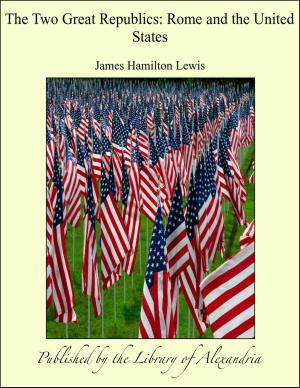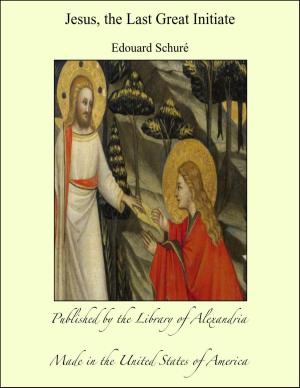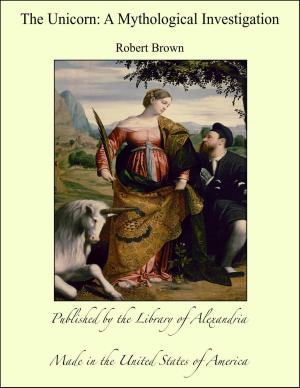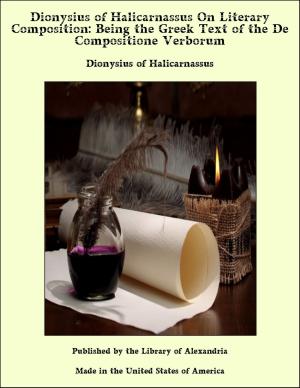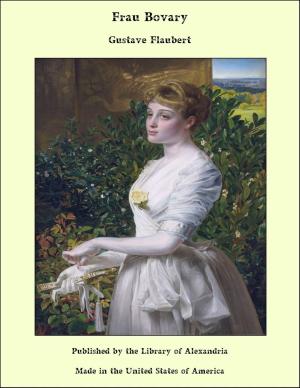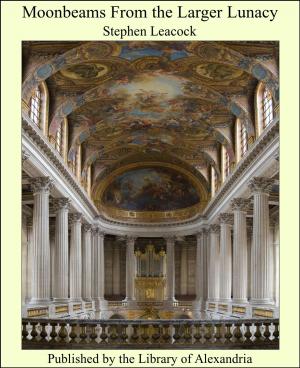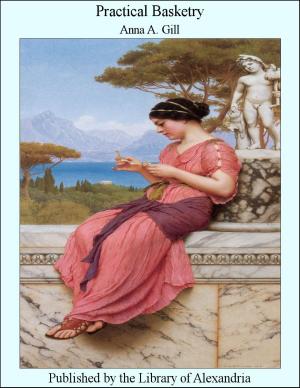Criminal Psychology: A Manual for Judges, Practitioners, and Students
Nonfiction, Religion & Spirituality, New Age, History, Fiction & Literature| Author: | Hans Gustav Adolf Gross | ISBN: | 9781465506375 |
| Publisher: | Library of Alexandria | Publication: | March 8, 2015 |
| Imprint: | Language: | English |
| Author: | Hans Gustav Adolf Gross |
| ISBN: | 9781465506375 |
| Publisher: | Library of Alexandria |
| Publication: | March 8, 2015 |
| Imprint: | |
| Language: | English |
SOCRATES, dealing in the Meno with the teachability of virtue, sends for one of Meno’s slaves, to prove by him the possibility of absolutely certain a priori knowledge. The slave is to determine the length of a rectangle, the contents of which is twice that of one measuring two feet; but he is to have no previous knowledge of the matter, and is not to be directly coached by Socrates. He is to discover the answer for himself. Actually the slave first gives out an incorrect answer. He answers that the length of a rectangle having twice the area of the one mentioned is four feet, thinking that the length doubles with the area. Thereupon Socrates triumphantly points out to Meno that the slave does as a matter of fact not yet quite know the truth under consideration, but that he really thinks he knows it; and then Socrates, in his own Socratic way, leads the slave to the correct solution. This very significant procedure of the philosopher is cited by Guggenheim as an illustration of the essence of a priori knowledge, and when we properly consider what we have to do with a witness who has to relate any fact, we may see in the Socratic method the simplest example of our task. We must never forget that the majority of mankind dealing with any subject whatever always believe that they know and repeat the truth, and even when they say doubtfully: “I believe.—It seems to me,” there is, in this tentativeness, more meant than meets the ear. When anybody says: “I believe that—” it merely means that he intends to insure himself against the event of being contradicted by better informed persons; but he certainly has not the doubt his expression indicates. When, however, the report of some bare fact is in question (“It rained,” “It was 9 o’clock,” “His beard was brown,” or “It was 8 o’clock,”) it does not matter to the narrator, and if he imparts such facts with the introduction, “I believe,” then he was really uncertain. The matter becomes important only where the issue involves partly-concealed observations, conclusions and judgments. In such cases another factor enters—conceit; what the witness asserts he is fairly certain of just because he asserts it, and all the “I believes,” “Perhapses,” and “It seemeds,” are merely insurance against all accidents. Generally statements are made without such reservations and, even if the matter is not long certain, with full assurance. What thus holds of the daily life, holds also, and more intensely, of court-witnesses, particularly in crucial matters. Anybody experienced in their conduct comes to be absolutely convinced that witnesses do not know what they know. A series of assertions are made with utter certainty. Yet when these are successively subjected to closer examinations, tested for their ground and source, only a very small portion can be retained unaltered. Of course, one may here overshoot the mark. It often happens, even in the routine of daily life, that a man may be made to feel shaky in his most absolute convictions, by means of an energetic attack and searching questions. Conscientious and sanguine people are particularly easy subjects of such doubts. Somebody narrates an event; questioning begins as to the indubitability of the fact, as to the exclusion of possible deception; the narrator becomes uncertain, he recalls that, because of a lively imagination, he has already believed himself to have seen things otherwise than they actually were, and finally he admits that the matter might probably have been different. During trials this is still more frequent. The circumstance of being in court of itself excites most people; the consciousness that one’s statement is, or may be, of great significance increases the excitement; and the authoritative character of the official subdues very many people to conform their opinions to his.
SOCRATES, dealing in the Meno with the teachability of virtue, sends for one of Meno’s slaves, to prove by him the possibility of absolutely certain a priori knowledge. The slave is to determine the length of a rectangle, the contents of which is twice that of one measuring two feet; but he is to have no previous knowledge of the matter, and is not to be directly coached by Socrates. He is to discover the answer for himself. Actually the slave first gives out an incorrect answer. He answers that the length of a rectangle having twice the area of the one mentioned is four feet, thinking that the length doubles with the area. Thereupon Socrates triumphantly points out to Meno that the slave does as a matter of fact not yet quite know the truth under consideration, but that he really thinks he knows it; and then Socrates, in his own Socratic way, leads the slave to the correct solution. This very significant procedure of the philosopher is cited by Guggenheim as an illustration of the essence of a priori knowledge, and when we properly consider what we have to do with a witness who has to relate any fact, we may see in the Socratic method the simplest example of our task. We must never forget that the majority of mankind dealing with any subject whatever always believe that they know and repeat the truth, and even when they say doubtfully: “I believe.—It seems to me,” there is, in this tentativeness, more meant than meets the ear. When anybody says: “I believe that—” it merely means that he intends to insure himself against the event of being contradicted by better informed persons; but he certainly has not the doubt his expression indicates. When, however, the report of some bare fact is in question (“It rained,” “It was 9 o’clock,” “His beard was brown,” or “It was 8 o’clock,”) it does not matter to the narrator, and if he imparts such facts with the introduction, “I believe,” then he was really uncertain. The matter becomes important only where the issue involves partly-concealed observations, conclusions and judgments. In such cases another factor enters—conceit; what the witness asserts he is fairly certain of just because he asserts it, and all the “I believes,” “Perhapses,” and “It seemeds,” are merely insurance against all accidents. Generally statements are made without such reservations and, even if the matter is not long certain, with full assurance. What thus holds of the daily life, holds also, and more intensely, of court-witnesses, particularly in crucial matters. Anybody experienced in their conduct comes to be absolutely convinced that witnesses do not know what they know. A series of assertions are made with utter certainty. Yet when these are successively subjected to closer examinations, tested for their ground and source, only a very small portion can be retained unaltered. Of course, one may here overshoot the mark. It often happens, even in the routine of daily life, that a man may be made to feel shaky in his most absolute convictions, by means of an energetic attack and searching questions. Conscientious and sanguine people are particularly easy subjects of such doubts. Somebody narrates an event; questioning begins as to the indubitability of the fact, as to the exclusion of possible deception; the narrator becomes uncertain, he recalls that, because of a lively imagination, he has already believed himself to have seen things otherwise than they actually were, and finally he admits that the matter might probably have been different. During trials this is still more frequent. The circumstance of being in court of itself excites most people; the consciousness that one’s statement is, or may be, of great significance increases the excitement; and the authoritative character of the official subdues very many people to conform their opinions to his.


